Using the lessons learned from Ontario’s wind-energy disputes, a group has identified factors that cause those disputes, and put forward recommendations for avoiding them. The group includes social scientists, community representatives, and wind-energy advocates. Concerns arise over such things as the distribution of financial benefits and compensation, and effects on the environment and the health […]
Tag: energy
Clean energy costs could price out the poorest
Reaching strict climate goals could mean that a sizeable number of people will remain dependent on traditional stoves, despite the negative health impacts. Researchers examined the relationship between climate mitigation policies and clean energy costs in South Asia. They found the most stringent mitigation policies could increase the cost of clean fuel by 38 per cent, leaving as many as 433 million South Asians […]
Mega-cities face challenges around the world
A study of the world’s megacities, those with a population greater than 10 million people, highlights the difficulties in resource use facing developing and developed cities around the world. As of 2010, there were 27 megacities around the world, and it is likely there will be 10 more by 2020. Developed cities, such as New […]
A cool way to cool
Researchers have created a new rooftop cooling device that works under direct sunlight, without electricity, by emitting back heat radiation into space. The authors have produced a multi-layered solar reflector made of hafnium dioxide (HfO2) and silicon dioxide (SiO2) that reflects 97 per cent of sunlight at a frequency called the ‘infrared atmospheric transparency window’ […]
Old Blu-ray discs can improve solar efficiency
There’s a new use for unwanted Blu-ray discs; as a tool to make more efficient solar cells. Researchers used the quasi-random, nanoscale pattern of islands and pits on the surface of a discarded Blu-ray disc as a mould to shape the surface of a polymer solar cell. The nanoscale pattern increased the efficiency with which […]
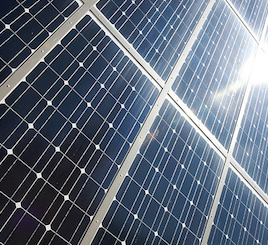
Thin coating could boost solar efficiency
A thin layer of metal oxides could significantly boost the efficiency of solar cells, according to a new study. Researchers have been working on a material made of the elements bismuth, iron, chromium and oxygen, which absorbs solar radiation. They discovered that by changing the temperature and pressure at which they deposit thin films of […]
Abundant natural gas won’t solve greenhouse emissions
Models suggest that a shift from coal to cheap natural gas is unlikely to lead to a significant reduction in greenhouse gas emissions worldwide. Natural gas is often touted as a greener fuel than coal because it produces fewer greenhouse gases, and due to advances in hydraulic fracturing technology it has become readily available. Researchers […]

Oil industries and winter ozone pollution
A new study explains the mechanism by which ground-level ozone pollution peaks during winter in oil and gas producing regions. Winter ozone pollution is hard to explain because the summer sunlight is normally needed to spark the chemical reactions that create ground-level ozone. The authors analyzed the chemical reactions happening in the atmosphere during winter in […]
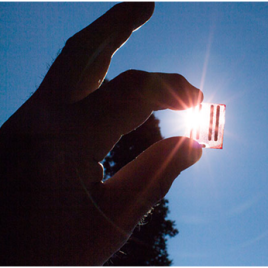
Gold nanoparticle ‘antennae’ could boost solar cell performance
Researchers have created tiny gold antennae that gather and concentrate light in order to increase the efficiency of solar cells by up to ten per cent. Solar cells often don’t absorb very well in the red or infrared part of the solar spectrum. Previous researchers have tried to use gold nanoparticles – which do capture and […]
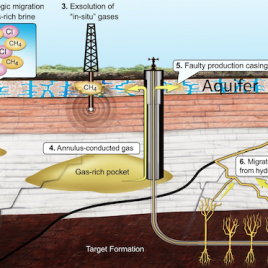
Tracing groundwater contamination above shale gas fields
A new study shows that methane leaks in drinking water wells around shale-gas wells in Pennsylvania and Texas come from failures in the integrity of gas well construction, and not from the drilling or hydraulic fracturing. The authors developed a new technique to look for the concentration of noble-gas isotopes in drinking-water samples to determine […]

Canola genome decoded
Scientists have decoded the genome of Brassica napus, the plant that gives us canola oil. Developed in the 1970s by researchers from the University of Manitoba, Agriculture and Agri-Food Canada (AAFC), and National Research Council (NRC) in Saskatoon (“canola” stands for CANadian Oil Low Acid) the crop has gained huge commercial importance. Because Brassica napus […]
Scientists propose ‘roadmap’ to determine the impact of fracking
An international review highlights the knowledge gaps related to the ecological consequences of shale gas development, and sets priorities for future research. The authors point out that shale-drilling operations have increased by more than 700 per cent in the United States since 2007 and that it has occurred mostly in areas of biological diversity, yet […]
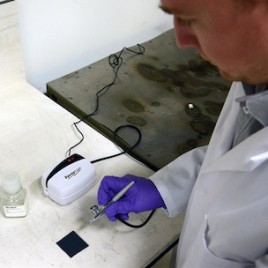
Sea salt makes for cheaper, greener solar cells
A new processing technique could enable cheaper, cleaner thin-film solar cells, according to a new study. Cadmium telluride is often touted as a replacement for silicon in solar cells; because it absorbs light so much better than silicon it could lead to thinner and more efficient cells. However, part of the manufacturing process involves cadmium […]
Comment: Experts call for moratorium on new pipelines
In a Comment piece in Nature, Eight experts in environmental science, policy and risk call for a moratorium on building new oil pipelines in North America. Both Keystone XL pipeline (which would run from Alberta through the US Midwest) and Northern Gateway pipeline which would connect Alberta with a port on British Columbia’s coast “highlight […]
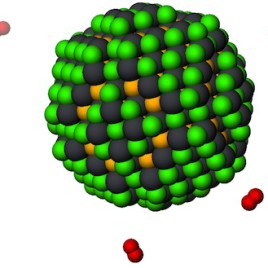
‘Electron-rich’ nanoparticles advance solar technology
Researchers have created a new breed of nanoparticle that could lead to cheaper and more efficient solar cells. Quantum dot solar cells are built using semiconducting nanoparticles that could be mixed into ink and printed in ordinary printers, greatly reducing the cost. Like traditional solar cells, they rely on two types of semiconductor materials: one […]
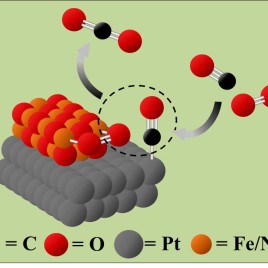
New nanoparticles provide superior pollution prevention
Removing toxic carbon monoxide (CO) from car exhaust and other pollution sources could soon be cheaper and more efficient, thanks to a new type of nanoparticle catalyst. Catalytic converters that turn CO into benign CO2 rely on expensive metals like platinum to speed up the chemical reaction. The new nanoparticles combine platinum with cheaper iron […]